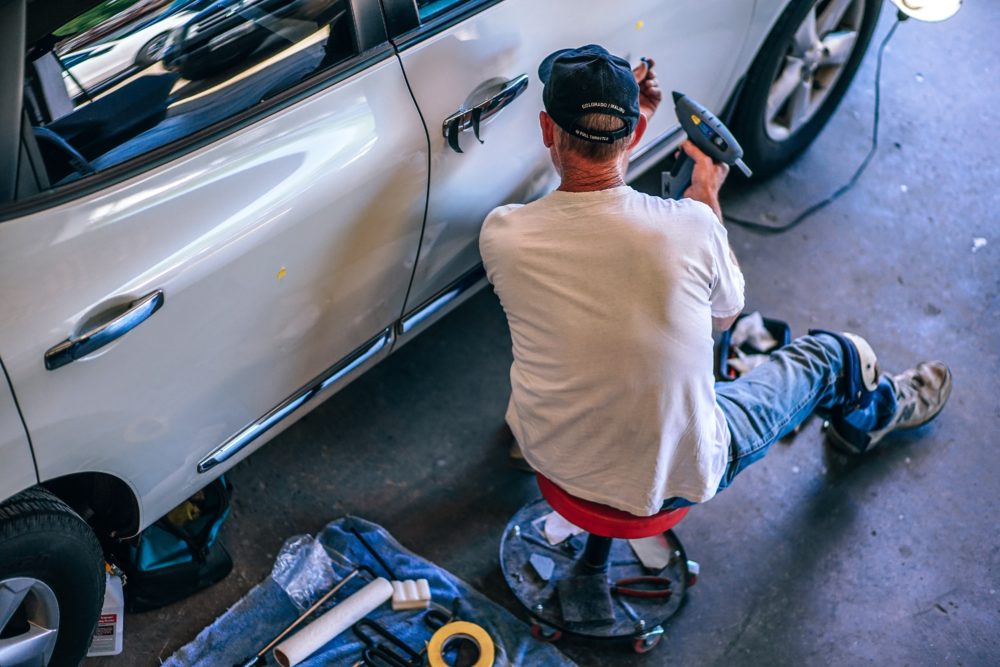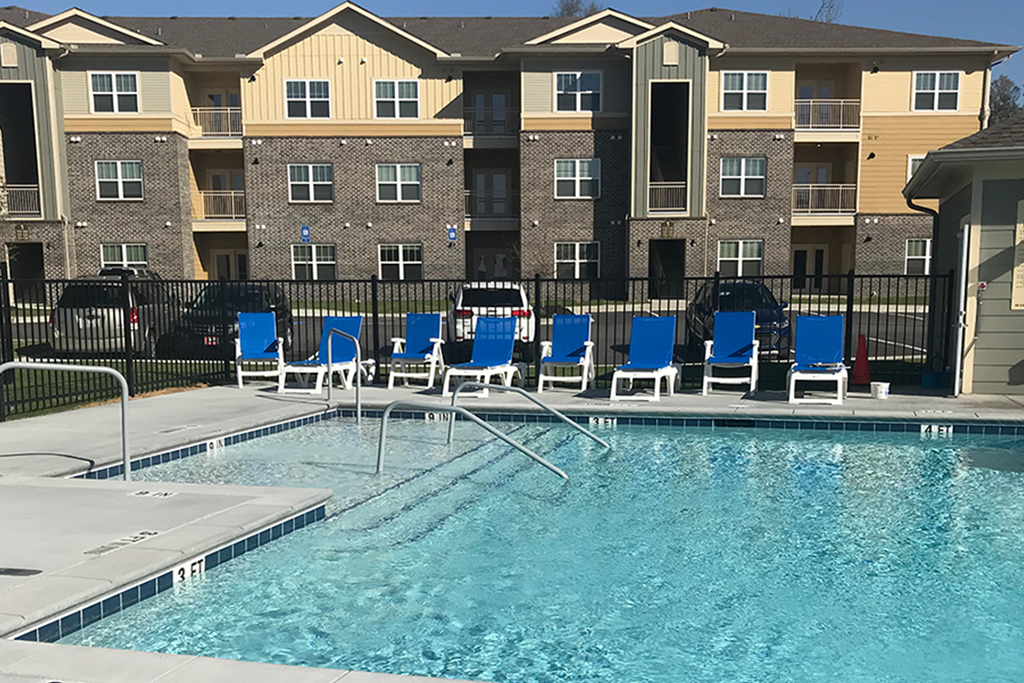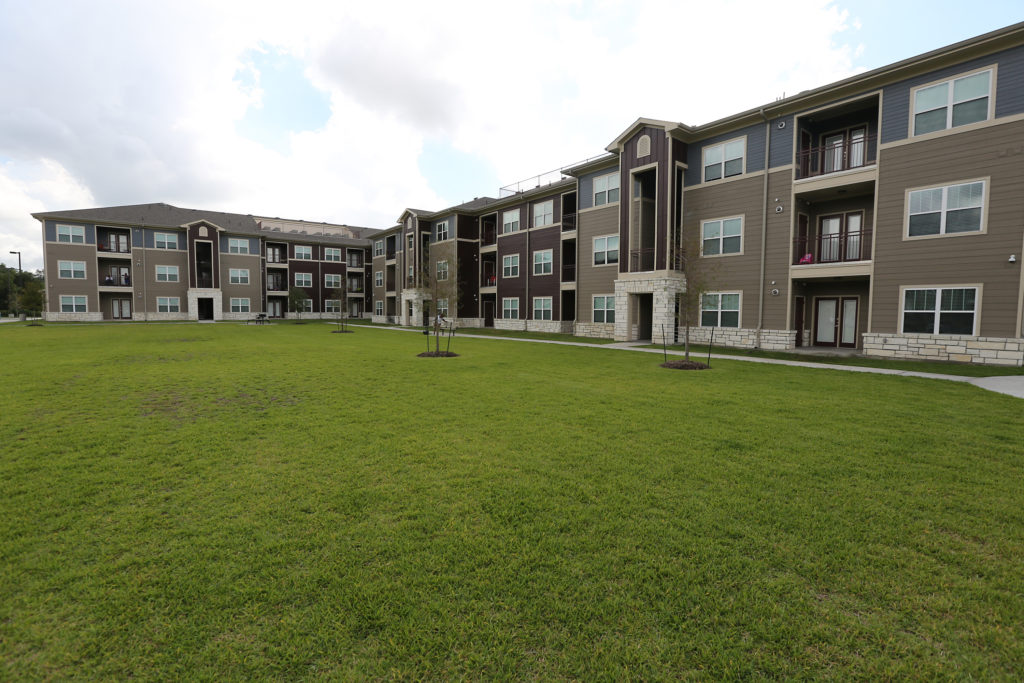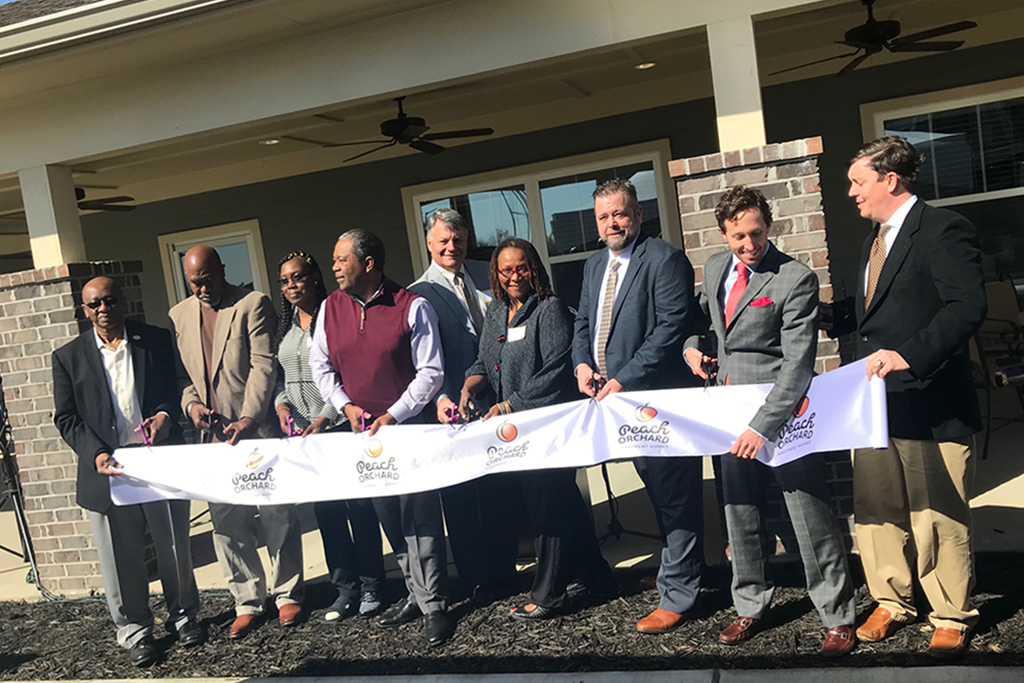Dispelling the affordable housing myths that hold us back from creating stronger communities.
Affordable housing has changed over the last few decades, but some of the old myths remain.
We’re here to provide you with the straight facts around affordable housing—because when we’re all on the same page, we can build a longer-lasting, tighter-knit neighborhood.
Contact us with any questions about our affordable housing developments and we’ll work together to see how we can help you invest in your community.
Learn the truth: We’re all stronger with knowledge on our side.

Affordable housing is the same as "Section 8" housing
"Section 8" refers to a program that subsidizes housing costs, not a particular type of development.
Although some of our residents are part of the Section 8 program, we screen all of our applicants with employment, background, and credit checks–in fact, far more carefully than most market-rate housing.
Our residents make an average household income of $38,000 - $41,000 in major metropolitan areas, and $30,000 - $35,000 in smaller communities.
Some of our residents are :
- Social Workers
- Local Enforcement Officials and other first responders
- Educational Instructors/Assistants
- Lab Technicians and other health care workers
- Support Staff for Schools (bus drivers, cafeteria works, janitors, etc)
Entry-level salaries vary greatly from state to state, but careers like these are the foundations of the neighborhoods we operate in.

Bringing affordable housing into my area will increase crime and decrease property values.
Affordable housing actually brings new investments into the community,
which in turn maintains or increases property values. Our buildings are also beautiful and well-maintained–the only thing that makes them different from market-rate housing is that they're available for select residents at a rate that is aligned with resident income.
We also conduct rigorous background checks on our residents, which are more thorough than market housing. As a result, we ensure only hard-working, contributing members of society live in our developments.
Affordable housing slows or prevents economic growth.
Communities require a fine balance between higher-income and lower-income individuals and families.
Economic growth is restricted where there are not enough employees to fulfill the demand for lower-paying service jobs, such as fast food workers and retail professionals.

My neighborhood doesn’t need affordable housing because everyone here earns above $100,000.
For every person that earns over $100,000, there are 6-8 people that work to support the higher income through their service.
Those people need affordable places to live.

Businesses don’t want to open up near affordable housing.
Businesses want to open locations near where their workers live.
Restaurants and retail giants will only open in communities with enough households to support them. By building a larger rental stock, you’re more likely to attract the investments and amenities that support your community in turn.

If there is affordable housing, then there won’t be any opportunity for market housing developments.
Affordable housing is generally developed in areas which need revitalization.
As a result, affordable housing can pave the way for market housing in many neighborhoods.

The affordable housing properties will be ruined in a few years.
We work closely with the local property management companies to ensure our developments are well taken care of.
We’re in this for the long-run; we own our properties for several decades. Our residents are proud of where they live, and they work hard to take care of their homes.

Affordable housing developers are going to flip and run.
We’re in this business because we care about building up local communities and providing homes for our residents.
We own our properties for over 30 years and spend time ensuring they are kept up to our high standards.

The people in affordable housing "live off the system" and drain its resources.
The kind of people that live in our developments are people already living and working in your community.
Teachers, firefighters, cafeteria workers, bus drivers, retail professionals, military veterans—these are the people we’re making homes for.

Most people in market housing don’t want any affordable housing developments nearby.
Only a small percentage of a community’s residents are opposed to affordable housing.
Many of them change their minds after learning what kind of developments we offer and the kind of people we build homes for.
Ready to start a project?
If you’ve got more burning questions about how affordable housing can truly improve and invigorate your neighborhood, contact us today.
